Feminists We Love: Dr. Kristie Dotson
Dr. Kristie Dotson is a Black feminist professional philosopher. She is an Associate Professor in the Department of Philosophy at Michigan State University. She earned a M.A. and Ph.D. in Philosophy from the University of Memphis, as well as an M.A. in Literature from the University of Illinois at Chicago and a B.A. in African American Studies, Business Administration and English Literature from Coe College. Professor Dotson’s research and teaching focus on epistemology, Black feminist thought, and critical philosophies of race.
Most recently, Professor Dotson edited a special edition of Hypatia: A Journal of Feminist Philosophy entitled “Interstices: Inheriting Women of Color Philosophy,” which features María Lugones, The Santa Cruz Feminist of Color Collective, Amrita Banerjee, and Devonya N. Havis, among many others. She also recently published “Conceptualizing Epistemic Oppression” (Social Epistemology). Her other recent publications include “Tracking Epistemic Violence, Tracking Practices of Silence” (Hypatia), “Concrete Flowers: Contemplating the Profession of Philosophy” (Hypatia), “Environmental Justice, Unknowability and Unqualified Affectability” with Kyle Whyte (Ethics and the Environment), “Agreeing to Disagree, Perhaps?: A Commentary on Naomi Zack, The Ethics and Mores of Race” (Radical Philosophy Review), “A Cautionary Tale: On Limiting Epistemic Oppression” (Frontiers: A Journal of Women’s Studies), “Querying Leonard Harris’ Insurrectionist Standards” (Transactions of the Charles S. Peirce Society), “Moi, Féministe Noire: Pour Qui Je Me Prends?” (Diogènes), “In Search of Tanzania: Are Effective Epistemic Practices Sufficient for Just Epistemic Practices?” (Southern Journal of Philosophy), and “How is this Paper Philosophy?” (Comparative Philosophy). She also co-edited the Race, Hybridity, and Miscegenation series with Robert Bernasconi.
She has also given talks on her work at Yale University, University of Michigan, Penn State University, Arizona State University, California State University—Fullerton, and Oregon State University, among other institutions, conferences and organizations.
For her steadfast commitment to the intellectual development of Black feminist theory, methodology, and praxis, Kristie Dotson is most certainly a feminist we love!
HRL: In your groundbreaking article “Tracking Epistemic Violence, Tracking Practices of Silence,” published in Hypatia, you coined the term “testimonial quieting” in order to theorize what happens “when an audience fails to identify a speaker as a knower.” Additionally, you coined “testimonial smothering,” which “is the truncating of one’s own testimony in order to insure that the testimony contains only content for which one’s audience demonstrates testimonial competence.” You offer these theories so that we may be more able to identify practices of silencing. Can you talk to us about why this is an important process?
This is a hard question. And my answer doesn’t make a whole lot of sense without a little back ground on me.
Growing up, my family, like many single-parent-headed families today and yesterday, lived one paycheck away from becoming homeless and separated. One day, for many reasons, my family and I became homeless. It wasn’t long before we were separated.
I was 15 at the time, so please forgive me for remembering this like a 15 year old might. I remember this period of economic instability and hunger mostly in terms of the fear of being taken away from my mother, the only consistent parent I’d ever known.
Everything seemed bearable as long as my mother was there. And it really was bearable. My family is one of the laughing-est families around. We enjoy life, even when life, to be frank, sucks.
It wasn’t long, or at least to a 15 year old it felt like it wasn’t long, before we had to separate to survive. My older sister went to my grandmother’s house, I went to my father’s house, and my mother and baby sister, who was very young at the time, lived in our car.
As bad as that was, and it was bad, I recall that what made that situation worse was the fact that I could not communicate my circumstances and what I needed. What we needed. Even the people willing and able to help really couldn’t help. They didn’t understand what ‘help’ looked like and I couldn’t tell them.
Don’t get me wrong. I tried to tell folks. But they didn’t know how to listen.
So I suffered separation from my family and extreme uncertainty in silence. Sometimes that silence was forced. Sometimes it was coerced. Sometimes it was simply the best option. Because even when I found a willing listener capable of transforming my situation (and this was a big “if”), it became apparent they most likely wouldn’t understand. Eventually, I just stopped talking.
Even at 15 I knew that kind of silence wasn’t right. At that time, I experienced silence and silencing so many times, in so many ways, that I couldn’t describe them all if I tried. [Laughs]
Something strange happened then, though. I began to see silence and silencing everywhere. I watched the frustration boil over in fellow high school students. Often, they were rendered inarticulate by a school system built with a systematic disregard for youth of color that was genuinely debilitating.
It slowly dawned on me that forced and coerced silencing additionally victimized most, if not all, people who had a history that included significant personal harm and suffering.
That kind of silence and silencing made an already bad situation much, much worse. At least, that is what my 15-year-old self concluded.
Today, my 40-year-old self would say, in my estimation, incapacitating silence and silencing were added layers of oppression that both exacerbated an already terrible situation and extended that situation beyond reasonable expectations. In other words, 25 years later, 2 Master’s degrees, a PhD, and years of fighting my way out of poverty, I still agree with my 15-year old self (just with fancier words [laughs]).
Silencing matters. Being heard matters.
They matter for remedies. They matter for recovery. They matter for living. They matter for well-being.
So, all those years ago, I became obsessed with identifying and investigating silencing. First as a way to focus on something I felt I could understand about a situation that, at the time, was beyond my understanding. I was an older teen, but I was still too young to understand intersecting systems of oppression and the extraordinary level of abandonment that leads to family separation. I had no idea of the extraordinary burdens placed on single-parent Black mothers to simply carry the day for their children, the predatory nature of foster care on Black mothers, the turn towards neo-liberalism that found one of its signature triumphs in Reagonomics, which was a primary cause of our own case of homelessness, and a whole host of situations both personal, interpersonal, national, and transnational that operated to facilitate my family’s situation and my particular silence.
Though my interest in silence and silencing was all-consuming, I started small. More specifically, I wondered why people felt so comfortable in what they thought they knew so as to ignore someone trying to tell them something they obviously didn’t know. Why did people think they knew so much? Particularly, why, when encountering an unfamiliar story, is their first move to reject it, their second to villainize it, and their third to deny its possibility by making it a problem with the speaker and not something “to know” about the world?
My experiences led me to, what I thought, were small questions. Why do people think they know what they know? As it turns out, and much to my surprise, this is actually a big question. The philosophy sub-discipline of epistemology has spent centuries trying to answer it. But my target has always been larger than this question. I am still on the hunt for ways to understand and reduce unjust coerced and forced silence and silencing and the specific role knowledge plays in that process. “Tracking Epistemic Violence, Tracking Practices of Silencing” is a small step towards this goal.
I think a great deal hangs on thinking through silence and silencing. Exploring the conditions for coerced silence and forced silencing can aid in envisioning the conditions for individual and communal well-being and the ability to build sustainable, caring communities, in my estimation. I know [laughs] that is a lot. But that is my vision. What I can see from here. Silencing matters.
HRL: In “Concrete Flowers: Contemplating the Profession of Philosophy,” published in the same edition of Hypatia, you acknowledge that the work of canonical philosophers, such as Martin Heidegger, Friedrich Nietzsche, and Jean-Paul Sartre, has been important for “diverse people drawn to philosophy.” However, you also write that, in graduate school, you couldn’t understand why you were supposed to revere said philosophers “as bedrocks for [you] own philosophical investigations when a fulfilling engagement with their work did not look feasible to [you].” Which philosophers, and of course I’m thinking about women and queer philosophers, as well as “philosophy born of struggle,” have been the most influential on you and your work? Why are these intellectuals so important to you?
It is hard to say that I have a “go-to” person in my work. I am mostly a question-driven driven professional philosopher. Anyone who can give me a way to understand coerced and/or forced silencing is a theoretical ally of mine.
I do have textual friends and real life friends with whom I often engage.
Audre Lorde changed my life by striking deep chords in me. Working through her body of work changed my epistemological orientations in important ways. Specifically, I learned new ways to say that the possession of knowledge is not the most important part of knowing.
Kimberlé Crenshaw, with whom I have worked with and count as a friend, showed me what was possible for academic work. Intersectionality, her baby, is an important epistemological and theoretical intervention and has real value for advocacy work.
Hortense Spillers’ work has shown me what boldness looks like. Her “Interstices: A Small Drama of Words,” does high, Black feminist theory without apology. Spillers, whom I have never met, taught me that when it comes to “high” theory, just do it.
Patricia Hill Collins’ work inspires me. Its constant interrogation of the relationship between knowledge and oppression for Black women is a model. Collins and I don’t work in the same areas, the same way, but her Black feminist epistemology work gave me a head start as a Black feminist epistemologist. I take the journey she traveled, the tools she constructed, and the projects I inherit from her as part of my legacy as a Black feminist who works on knowledge.
There are so many others that I could (and should mention), but y’all ain’t got all day.
HRL: Two years ago, you published “How is this Paper Philosophy?” in Comparative Philosophy, and discussed your reservations about your sister becoming a philosopher, because, as an advisor told her, it’s a “white man’s game.” Because of the white male paradigm that dominates philosophy as a discipline, you wrote that you are “often made to feel a sense of incongruence.” Can you talk a bit more about why you think philosophy has been so hostile to Black women? Additionally, I’m hoping that you can share some of the strategies you’ve developed over the years for navigating these struggles.
Academic philosophy in the U.S. is hard on most Black women. Heck, it is hard on a lot of people of color. Personally, and I really am only speaking for myself here (I don’t want to step on any toes…there’s a lot of disagreement over the “problems of the profession of academic philosophy”), I started with a fairly traditional set of questions about knowledge, i.e. “What is knowledge? Why do people think they have knowledge?” etc. and got incredibly lucky. These questions made my work fairly “mainstream,” at least more so than a great deal of projects you will find Black women engaged in currently in academic philosophy. The random convergence between my interests and more “mainstream” versions of epistemology made the possibility of my work’s uptake in academic philosophy more likely than other kinds of important projects. This unearned privilege insulated me from a great deal of craziness in my field, though not all of it.
So when I wrote, “How is this Paper Philosophy?” I was in the process of thinking through the things I’d seen that made routine engagement with one’s philosophy colleagues particularly onerous. Part of the problem was the cartoon “question mark,” as Crenshaw explains it, over one’s head when one talks about or presents one’s work. That question mark, which can take any number of forms, boils down to a question about the legitimacy of one’s projects and/or one’s existence in a given profession.
It was the question mark that I felt through graduate school and early on in my professional engagement that shapes my opinion of the field of philosophy at large. In many ways, “How is this Paper Philosophy?” was a statement about my distaste for the profession of philosophy and the question marks it makes some of us bear.
And if those question marks exist for me, and they did (and do), as a fairly “mainstream-able” Black feminist professional philosopher, what must it be for folks whose projects don’t hit the barn-side-wall of current disciplinary standards for respectability? In other words, if someone like me who can often slip under the radar of disciplinary respectability without changing my interests and focus can feel the impact of cartoon “question marks,” what about everyone else?
The success of “How is this Paper Philosophy?” is a surprise to me. In that paper, I wrote what I wanted to read, what I’d hoped I could have read as a graduate student (and maybe before). That anyone else wants to read it still surprises me.
So when you ask me what strategies I have, I have to be honest: none that are particularly useful. My most significant strategy was to write a paper about the profession of academic philosophy and fight to get it published (an almost five year journey) so that I could return to it to encourage myself, but also to highlight the cartoon “question mark” resting over my head.
Publishing, “How is this Paper Philosophy?” even without its current reception, was watershed for me. The essential message of that paper is that anyone who thinks that questioning the justification for a given philosophical project is a legitimate question without clarifying one’s own conception of philosophy and philosophical engagement is acting like an asshole.
I didn’t need a soul to read that paper for its publication to be a life-giving moment for me. For someone who works on silencing, the attempt to speak can make all the difference in the world.
Now, this is not particularly good advice, depending on your perspective. I lived my Assistant Professor years like I was not going to get tenure. That is to say, I was not afraid to lose my job. I strove for tenure, publishing and giving papers and such, but I did not bother to do all the microagressive, professional cultural things people tell you to do in order to attain it. So, publishing a paper saying that one’s profession is full of unpleasant folks, as an assistant professor, is probably not the best strategy. But it worked for me. [Laughs.]
HRL: You conclude “How is this Paper Philosophy?” by suggesting “a culture of praxis within professional philosophy would present a great deal more livable options than it does currently.” I’m hoping that you can define philosophical praxis here and discuss here how your own work is advancing the discipline in this way.
Tough question. First, let me say that philosophical engagement is a basic human activity. Everyone does it. Most people don’t think of themselves as “philosophizing” when they ask broad questions about the state of things, but they are. Anyone who has ever scratched their head and asked, “What is this world all about?” or “Why are things set up the way they are?” has already begun philosophizing. Philosophical questions can get broader and more particular, but there are very few people who have never taken a step back and asked, “What is really going on?” and then attempted to imagine answers.
As a professional, Black feminist philosopher, i.e. a person who draws her living from my knowledge about philosophy and specializes in investigating the conditions of oppression and liberation for Black women-kind, I try to answer the question, “What is really going on with respect to cis- and trans* Black women and girls, particularly in a U.S. context?” The answers I come up with, I hope, contribute to bodies of work also seeking answers to this question so that we can think and pursue justice in the 21st century. In this way, what I do is engaged in a particular community.
Philosophical praxis, for me, is an “engaged” pursuit of answers to broad questions. The emphasis on “engaged” highlights philosophy that is done in and for communities, where those communities are not considered monolithic.
For example, as a member of the #WhyWeCantWait core team, which challenged the gender-exclusive nature of President Obama’s initiative, My Brother’s Keeper (MBK), I took part in a range of actions aimed at moving a so-called, racial justice measure to include all youth of color in targeted communities. Flawed though MBK is, and it is flawed all the way down to its neo-liberal focus on individual achievement instead of structural remedies, advocating for girls of color taught me something that merely producing theory never could. I was able to witness specific ways “knowledge” works in the world.
Books and theories, wonderful and illuminating though they may be, could not teach me some of the things that putting my epistemological training to work taught me. It was the community of engagement, a group of Black feminists from various walks of life, and the attempt to wrestle with existing institutions that transformed my understanding of my work and what my work can do to help under racial racial justice in the 21st century.
Engagement, for me, means working towards some goal with a range of people interested in similar issues, especially where consensus is not a given. Philosophical praxis, on my account, is the result of pursuing answers to broad questions in communities; this requires the realization that even in the most abstract philosophical work is done via engagement with a community of folks thinking about the same kinds of things. These communities are not mutually exclusive, but neither are they synonymous with one another. Inquiries often drive their formation, not disciplinary standards.
HRL: During the 2011 Conference for Pre-Tenure Women at Purdue University, Caroline S. Turner said, “Women get mad and leave. Men get mad and stay.” That crosses my mind when I think about the decisions marginalized intellectuals make regarding when to walk away and when to stay at particular institutions in the academy. For instance, you left your first tenure-track job after just one year to take a position in the Department of Philosophy at Michigan State University. I don’t presume to know all of the complex reasons for your decision, but I am hoping that you can share some advice about how to effectively make such an important decision. I’m also wondering if you would be willing to provide some commentary on Dr. Turner’s theory.
My experience has shown me that the statement, “Women get mad and leave. Men get mad and stay,” speaks a misleading half-truth, if not contextualized. It can often be explained by privilege and structure of supremacy in a given institutional context.
For women of color in the academy, one must be very careful. First, one needs to consider how quickly women of color academics die. Yes, I said, die, as in death, especially if you are a feminist academic.
I went to a women of color event on Michigan State University’s campus, and Terrion L. Williamson appropriately started with a tribute to women of color academics and artists who died before the age of 60. There are simply too many of us, especially when you consider our relatively small numbers.
It simply may be that women of color can and do die of excessive negative emotional onslaughts caused, in large part, by the circumstances of our lives. So one needs to be very careful with respect to negative emotion. Seriously. Getting mad all the time is not an ideal circumstance for personal well-being.
And the privilege of academic life can sometimes afford a mobility that makes a “stay and fight” mentality just plain silly. There are other fights, especially if you are a Black feminist academic. Some of us will choose to stay and fight and others of us will choose different battles entirely. I, personally, chose a different battle entirely.
None of this is to say that one can avoid anger in one’s workplace. Black women in every profession can call “lie” to that idea. And the reality is, some anger is productive. However, it is important to judge one’s environment to see whether one’s anger is getting genuine uptake.
What I found at my first institution, and this has probably changed, was a lip service acknowledgement of the situations that invoked my anger. It slowly became clear to me that I would run the gauntlet for tenure and come out the other end needing to sue that institution for it, whether or not I’d earned tenure (and I would have).
Now though I did not live for tenure as a junior professor, my mama didn’t raise no fool. I don’t fight losing battles for no good reason. There are other fronts on which to fight.
Too many women of color who get mad and stay under similar conditions are forced out with failed tenure bids. You see my point? They are forced to leave anyway.
So one could interpret the “women get mad and leave” observation as: many women read the writing on the wall and get ghost.
One could also say that “men” stay and fight because institutional landscapes are primed for recognizing their claims for workplace justice as reasonable.
White male supremacy helps white men along with this. Male supremacy helps many men of color along with this (I say “many,” because I think that race can be a serious mitigating factor for one’s grievances gaining uptake, along with sexuality, nationality, ability, and trans* status).
Most women of color, specifically, cannot rely on institutions to “work” for them and their claims. Better to find more agreeable workplace conditions.
That was my long answer [laughs]. My short answer is, “women get mad and leave” because they’re smart. The deck is already stacked so high against them that anger and how one’s anger is received is a sign of future disappointment and injustice. People with options rarely take the option of higher suffering for the sake of “sticking it out” in some random institution. And when they do, they see the institutional fight as worth the increased risk of experiencing greater disappointment and injustice in the future. I applaud these women for their service, as those who follow them will benefit.
There are still others of us who make the decision that, if one is going to be in a fight, then there are simply other more preferable struggles.
HRL: I couldn’t end this interview with you without asking about feminist pedagogy. I still vividly remember taking your Feminist Theory & Methodology course at Purdue six years ago, and it has been a great influence on my own teaching, especially my Feminist Theory course. I’m wondering if you can share some insight about the strategies you’ve developed over the years for teaching feminist theory. More specifically, what kinds of challenges do you face during those courses, and how have you managed to overcome, or at least mitigate, those challenges?
Here’s what I have learned: in order to talk the talk you should probably try to walk the walk.
Some have called me hardcore on this point. But I want everyone to understand that I learned how to be a Black feminist at my mama and grandmama’s knees. And it was, and still is, unacceptable to talk with authority about something that you are not willing to do, try, or seriously investigate.
If you are not willing to read the nuances of Black women’s social theory outside of some framework that a European philosopher gave you, you are about the business of re-colonization with the privilege to do so.
If you want to work on “sex work,” as an academic and have never engaged in or know anyone who has engaged in such work, you are about the business of re-colonization with the privilege to do so.
If you want to work on topics and issues in an African context as a U.S. citizen, and have only gone to that context a handful of times or not at all, and yet try to speak with an authority you have not earned, you are about the business of re-colonization with the privilege to do so.
There is so much pressure to do academic work in line with colonizing intents. It often is sold as rigorous academic engagement. But it looks like re-colonization to me.
From the constant desire to “brand” or to come up with something “new,” or to criticize instead of create or to talk with authority one has not earned, all of this (and so much more) lends itself to machinations of re-colonization prevalent in academic spheres.
The biggest challenge I’ve had is watching re-colonizing practices in the academy, being measured according to its markers of success, and remaining the Black feminist my mama raised to be.
The one that understands I inherit worlds left for me and my job may simply be “to make old ideas” feel differently on any given day (Audre Lorde); the kind of Black feminist that sees critique as a privilege earned by those who have taken the time to truly understand; the kind of Black feminist that sees myself as part of the world and not the world as a figment of my imagination.
You see, I’m not searching for the next new thing. I’m not looking to produce the next original thought. I scarcely believe such a thing is possible. I do want to retain what we have that helps us make sense of this world and update it for today’s time with love. Always with love.
I leave what I cannot love to be cherished and updated by those who do or to simply fade away.
So the biggest challenge for me in the academy is to root out the kinds of professional values that require my engagement in re-colonization and its demand for self-hatred. That is what the academy, and most professional contexts, asks of many of us. “Love it and hate yourself.”
I struggle daily to say, “Not me, not today.” Some days I succeed, some days don’t.
But I constantly struggle by remaining aware that there is such a struggle.
HRL: I want to end by asking you about upcoming projects. What can we expect from Kristie Dotson in the coming months?
Academic writing-wise, I have a couple of book projects that are ongoing.
My first projects talks about some ways knowledge is used to perpetuate oppression, tentatively entitled, “How to Do Things with Knowledge.” This book is grounded in Black feminist epistemologies, analytic epistemology, and liberatory epistemologies. My second project is a book length treatment of Black feminist epistemology. I see these two projects as related. A book on how knowledge works in our everyday landscapes is required, in my opinion, for understanding Black feminist epistemology.
Organizing-wise, I am looking to form a Black Feminist Cooperative (BFC) that functions to offer a platform for collaboration across national and global contexts for liberatory work by, with, and on behalf of cis- and trans* Black women, girls, and gender non-conforming folks.
As fancy as that sounds, I am thinking particularly of building a network platform for the amazing Black feminist activism, politics, art and/or academic work that is happening currently. This could manifest as a website for networking and coordinating efforts; to something like a fellows program to support the incredible work being produced; to podcasts on Black feminist work today; to, maybe someday, artists-, activists-, and/or scholars-in-residence programs.
As an academic, it is often thought that we don’t have a great deal that we can do to encourage movement building from within our contexts. And that is probably true [laughs]. But I do have institutional resources that, admittedly, cannot (and should not) lead a movement, but can lend support.
Right now, I have a little bit to do a little bit [laughs], and am now seeking the counsel of Black feminists from all walks of life to see how best to utilize those resources.
In any event, anything I do will have to start small. I have caviar tastes with a neck-bone pocketbook, but I’m working on that [laughs].

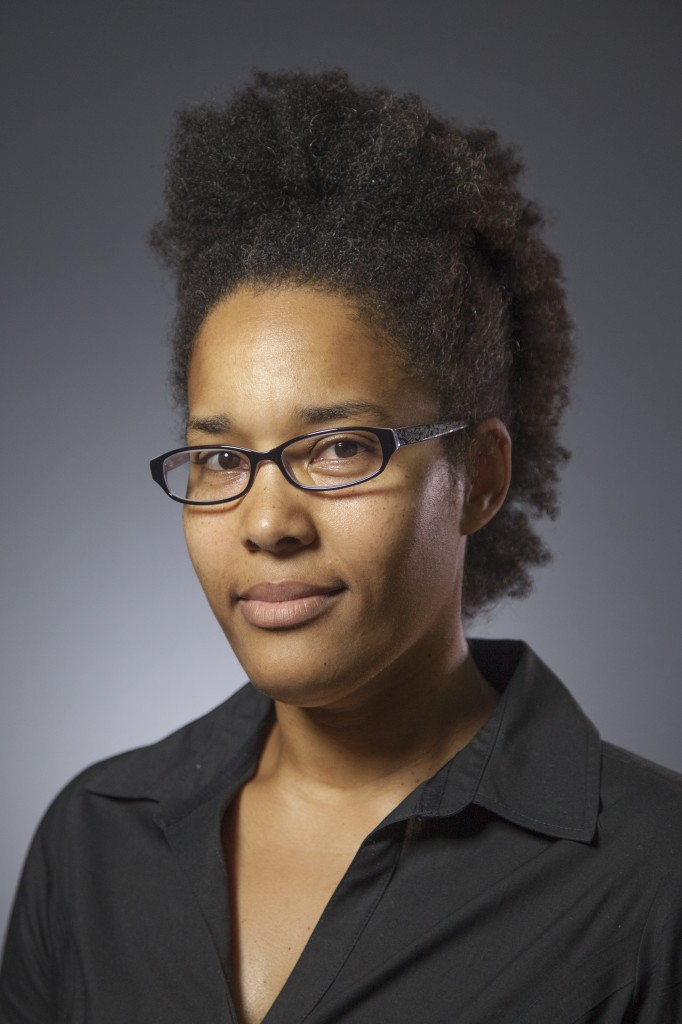
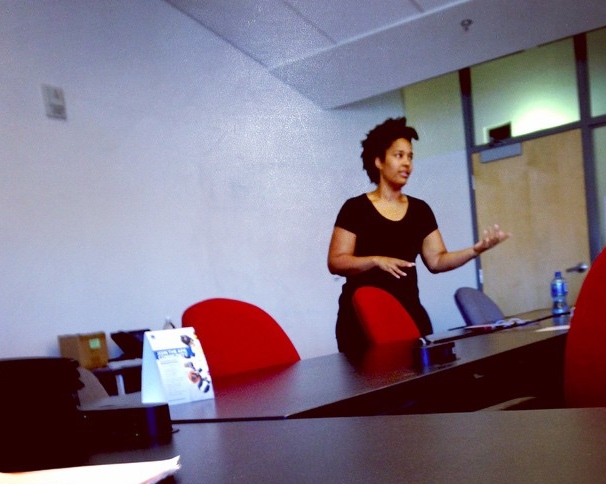
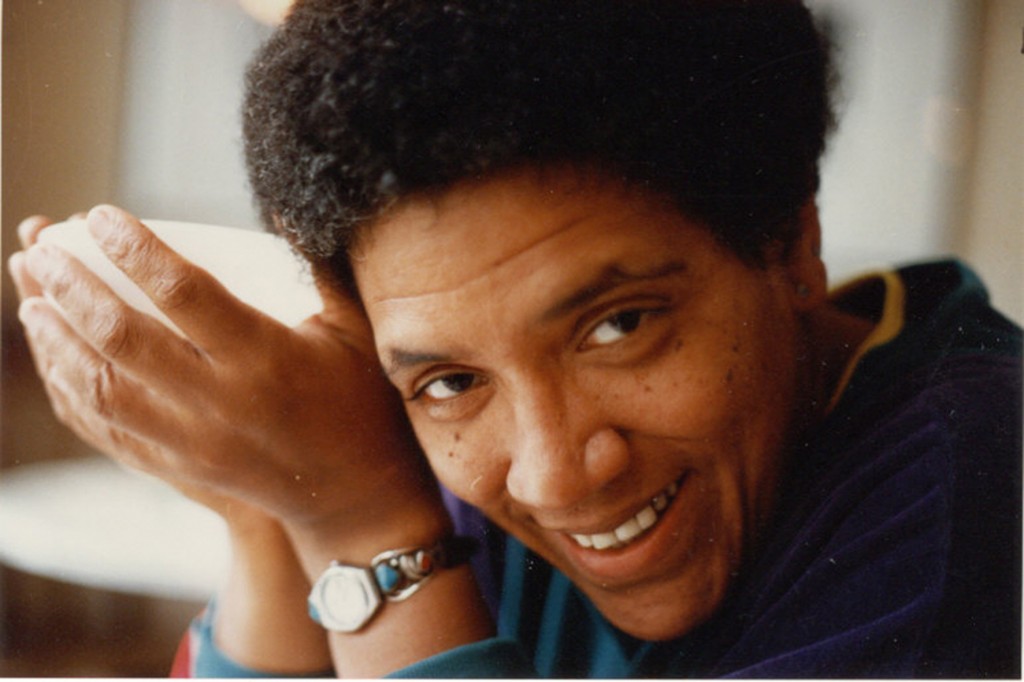
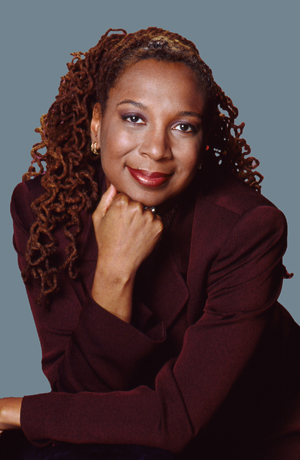
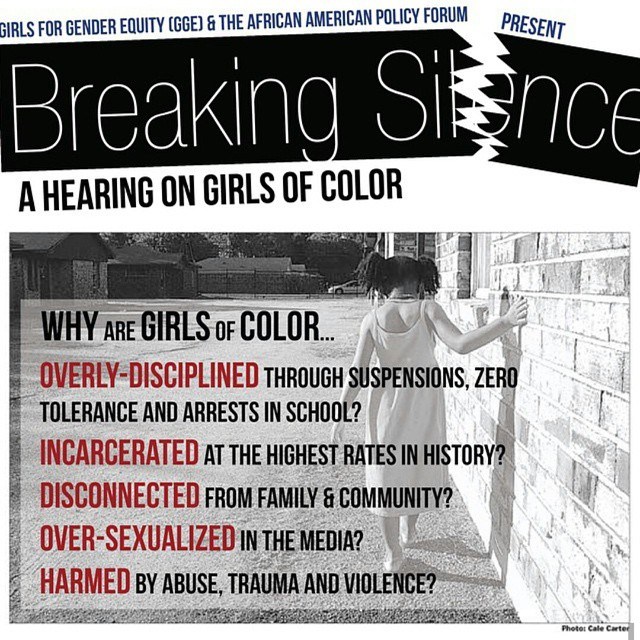
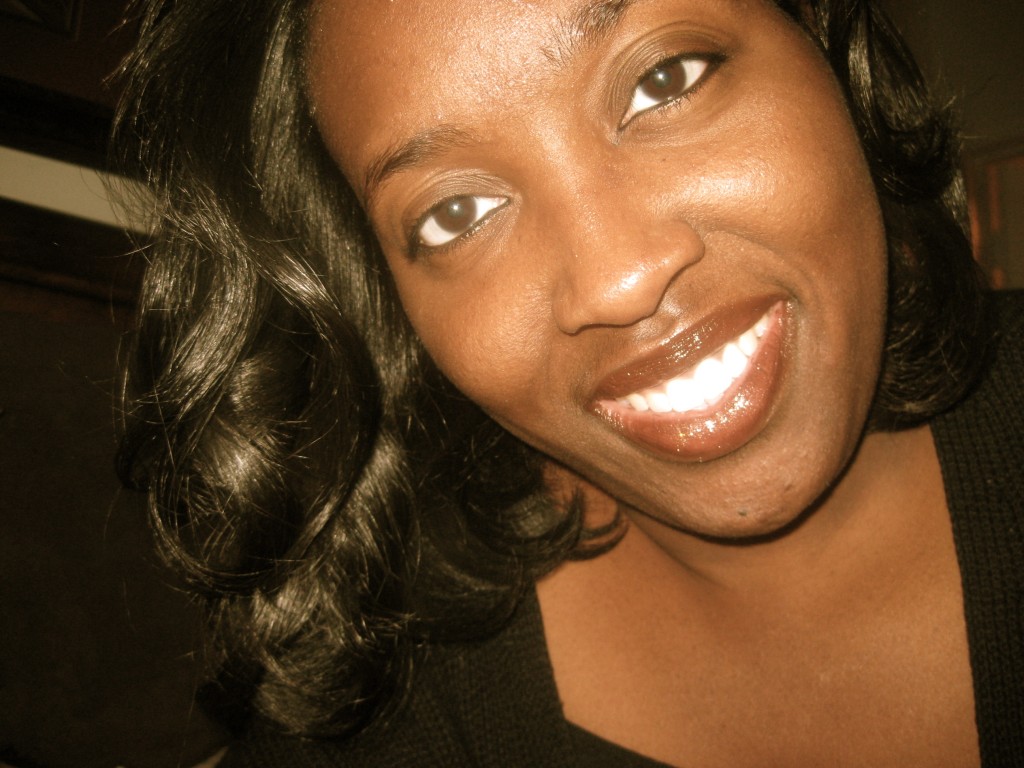



Pingback: Feminists We Love: Dr. Kristie Dotson – The Feminist Wire | Public Philosophy Journal
Pingback: On Being Silenced | Feminists in Student Affairs